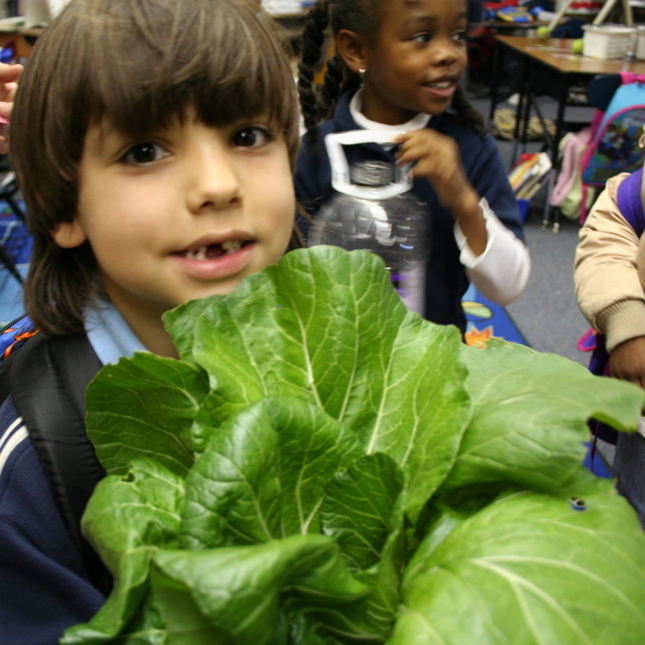Dish with Gracie: Empowering a Healthier Future for Your Family
We have been at the forefront of the battle against childhood obesity for nearly two decades, working tirelessly to change how children eat and think about food through innovative programs that inspire healthy habits. Yet, the fight against this epidemic requires collective effort. It’s a battle we must all join to build a healthier future for the next generation.
As we recognize September as National Childhood Obesity Awareness Month, it’s crucial to reflect on the impact that childhood obesity still has on the health and well-being of our children and how we can all do our part to stem the tide.
Understanding the Scope of Childhood Obesity
The statistics are still staggering: about 1 in 5 children in the United States is affected by obesity. This is more than just a number; it represents children who are at higher risk for a range of chronic health conditions and diseases, including asthma, sleep apnea, type 2 diabetes, and heart disease. Moreover, obesity in childhood often leads to obesity in adulthood, setting the stage for lifelong health challenges.
The physical health impacts are only part of the story. Children with obesity are more likely to experience social isolation, depression, and lower self-esteem, which can further compound their struggles. They are also more likely to be bullied, creating a cycle of emotional distress that can be difficult to break.



The Role of Family in Preventing Childhood Obesity
Preventing childhood obesity starts at home, but it also requires the support of communities, schools, and healthcare providers. As parents and caregivers, we have the power to build a healthy future for our families by making healthier foods, beverages, and physical activity the easy choice for our children. By taking small, consistent actions, we can make a big difference.
Here are some steps you can take to support your child’s health and well-being:
Be Aware of Your Child’s Growth: Understanding how obesity is measured in children is the first step in recognizing potential issues early on. Use tools like the CDC’s Child and Teen BMI Calculator to monitor your child’s growth and consult with your pediatrician regularly.
Prioritize Nutritious Foods: Incorporate more fruits and vegetables into your family’s diet and reduce the intake of foods high in added sugars and solid fats. Not only are fruits and vegetables rich in essential nutrients, but they also help instill healthy eating habits that can last a lifetime.
Promote Regular Physical Activity: Children need at least 60 minutes of physical activity each day. Whether it’s a dance party in the living room, a game of tag in the backyard, or a family bike ride, find ways to make physical activity fun and a regular part of your daily routine.
Ensure Healthy Sleep Habits: Adequate sleep is essential for maintaining a healthy weight and overall well-being. Establish a consistent bedtime routine, remove electronic devices from the bedroom, and ensure your child’s room is conducive to sleep—dark, cool, and quiet.
Encourage Mindful Eating: Mindful eating involves being present and aware during meals, allowing us to make better food choices and recognize our body’s hunger and fullness cues. Please encourage your family to sit down together for meals without distractions and teach your children to listen to their bodies.
Provide Access to Safe, Free Drinking Water: Water should be the drink of choice for children. Ensure they have access to safe, free drinking water at home, school, and in the community. Limiting sugary beverages is a crucial step in preventing obesity.
Create Healthy Food Environments: The environment plays a significant role in shaping our food choices. At home, keep healthy snacks within reach and limit access to junk food. Advocate for more nutritious food options in schools and communities and support efforts to eliminate food deserts by encouraging the development of grocery stores, farmers’ markets, and urban farms.
Eat Dinner Together: The frequency of shared family meals is significantly related to nutritional health in children and adolescents. Children and adolescents who share family meals three or more times per week are more likely to be in a normal weight range and have healthier dietary and eating patterns than those who share fewer than three family meals, and they are less likely to engage in disordered eating.
The Importance of Community Support
While individual actions are vital, the fight against childhood obesity also requires a collective effort. Communities, schools, and healthcare providers all have a role to play in creating environments that support healthy living.

Schools: Schools can adopt policies that promote healthy eating and physical activity. From offering nutritious meals to providing opportunities for students to engage in physical activities, establishing wellness committees to foster a campus-wide culture of health, and implementing proven programs like Recipe for Success Foundation’s integrated Seed-to-Plate Nutrition Education, schools are a critical part of the solution.
Healthcare Providers: Healthcare providers can support families by regularly measuring children’s weight, height, and BMI. They can also connect families with resources like childhood healthy weight programs, nutrition education programs, and cooking classes provided by Texas AgriLife, the Houston Food Bank, or Hope Farms Urban Agricultural Showcase and Training Center.
Community Centers: Community organizations can ensure neighborhoods have low-cost physical activity opportunities like parks, trails, and recreational centers. They can also offer programs that make healthy foods accessible and affordable, such as building a community garden, collaborating with Kids Meals home delivery programs, becoming a Houston Food Bank drop-off location, or making excess land available to alumni of Recipe for Success Foundation’s Growing Urban Farmers training to start a new urban farm in the neighborhood.


So, What Will You Do?
National Childhood Obesity Awareness Month is an opportunity for all of us to reflect on the impact of childhood obesity and take action to build a healthy future for our families and our neighbors’ families. By working together—parents, caregivers, schools, healthcare providers, and communities—we can create environments that support healthy growth for our children.
At Recipe for Success Foundation, we believe that every child deserves the chance to lead a healthy, fulfilling life. Through education, empowerment, and inspiration, we can make this belief a reality.
Join us in the fight against childhood obesity. Together, we can change the future.

